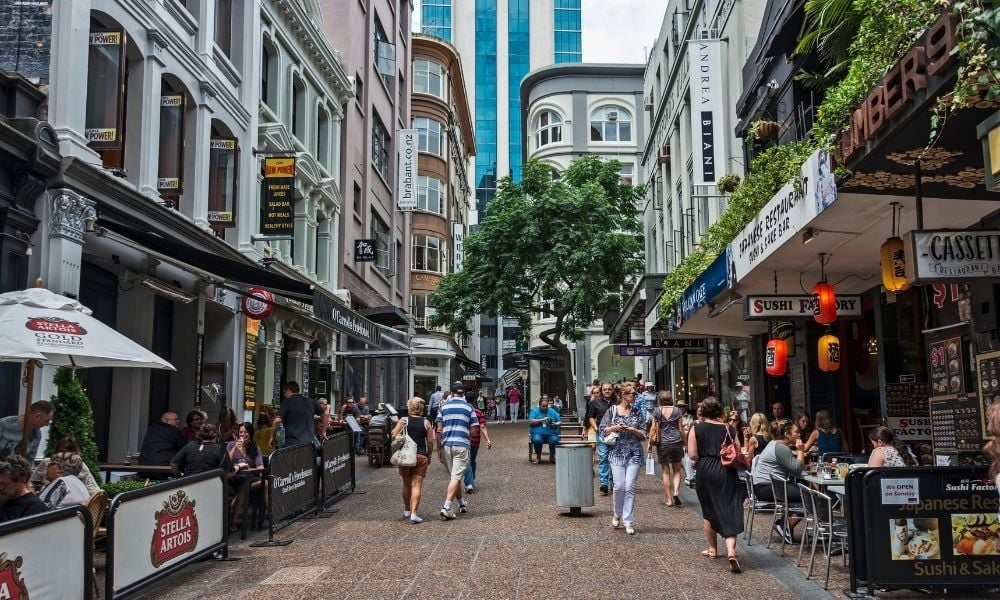"Cabinet needs to balance the pressures on the health sector against the mounting toll of lockdown"

Auckland businesses will have more freedom to operate next week, with Cabinet announcing an in-principle decision to move the region down to step two of its roadmap out of lockdown - a move which will allow more businesses to open their doors, and will increase allowances for outdoor gatherings.
The Waikato region will be also be easing restrictions from 11.59PM today. Retail and public facilities will be allowed to re-open, and the number of people who can meet outside will increase to 25, with the two households restriction no longer applying.
Auckland businesses have been struck hard by the ongoing lockdown, which is now entering its twelfth week, and advisers have been working hard to ensure that clients have the right support in place, and are able to access lending and assistance when needed.
ASB chief economist Nick Tuffley said that the ongoing restrictions have been difficult for Auckland businesses, and retailers in particular will be looking towards Christmas in hopes of seeing some increased spending - though the rules around this time period are still yet to be decided.
“Cabinet needs to balance the future pressures on the health sector and further geographical spread of the virus against the mounting toll lockdown is taking on people and businesses,” Tuffley said.
Read more: ASB offers low-interest overdrafts to businesses
“The heat under the lockdown pressure cooker is growing, even as community transmission slowly but surely spreads.”
“And the thorny issue of Christmas is starting loom,” he said. “People need to try to make plans for where and who they can spend Christmas with, and what goodies are available to gift. The holiday period and its lead-up is a time when many businesses (particularly in retail) make the money that gets them through the quieter times of the year.”
Tuffley noted that the Reserve Bank’s Financial Stability Report (FSR) is also due tomorrow morning, and housing is likely to be a “key financial stability risk” for the central bank to consider. He said that tools like debt to income ratios may be brought out, with LVR limits also likely to be under the spotlight.
“The focus of the RBNZ’s November Financial Stability Report (FSR) will remain on housing,” Tuffley said.
“Strong balance sheets have helped the financial system and the broader economic recovery, but the RBNZ will be wary given strong house price gains of late and the Bank’s assessment that house price levels are currently ‘unsustainable’.”
“To prevent this, the RBNZ has been progressively tightening loan-to-value ratio (LVR) restrictions on mortgage lending, and the FSR will also likely discuss recent consultations on implementing Debt-to-Income (DTI) restrictions and/or interest rate floors to slow borrowing,” he explained.
Read more: Lender says small businesses aren’t just surviving - they’re thriving
“Both could soon be formally added to the RBNZ’s toolkit. With mortgage interest rates set to move higher and other factors looking less supportive - i.e., low population growth, increasing dwelling supply - he housing market looks set to cool significantly.”
Against the backdrop of a more difficult economic environment, the role of advisers has been growing substantially throughout the past several years. Market commentators have said that adviser assistance will become more necessary for small businesses to access lending, and for individuals to take
Commenting on the role that advisers play in assisting clients through volatile periods, CoreData founder Andrew Inwood said that lockdown has been used as a ‘transformative experience’ for many, and that the channel has been vital in helping both individuals and businesses to weather the storm.
“One of the most important things that an adviser does is that they take their customers from chaos into order,” Inwood said.
“Nine times out of ten, the people who enter an adviser’s office are in absolute chaos, and they leave on the journey to order, understanding and confidence - and that results in much better outcomes.”
“We know that they have better insurances, more overseas holidays, and if they have calamity in their lives, they face into it better,” he said. “It’s worth thinking about how we make the best of this for ourselves, and also for our clients, and actually use this as a transformative experience.”



